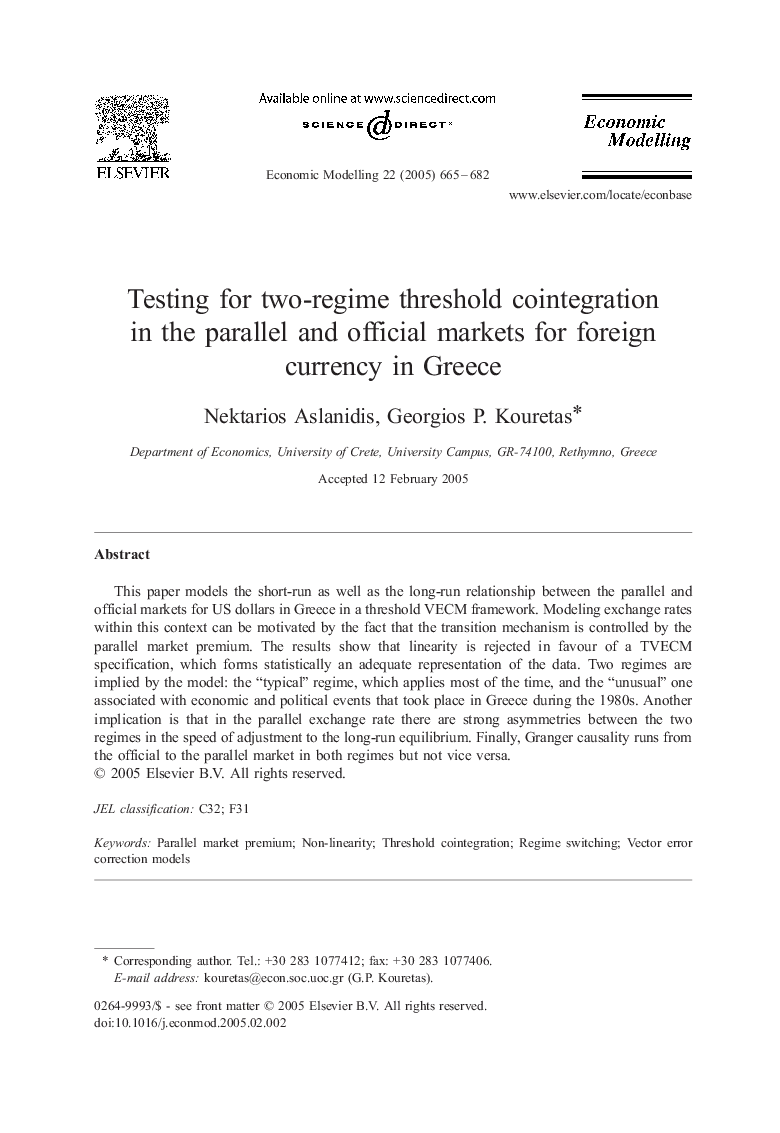| Article ID | Journal | Published Year | Pages | File Type |
|---|---|---|---|---|
| 9548612 | Economic Modelling | 2005 | 18 Pages |
Abstract
This paper models the short-run as well as the long-run relationship between the parallel and official markets for US dollars in Greece in a threshold VECM framework. Modeling exchange rates within this context can be motivated by the fact that the transition mechanism is controlled by the parallel market premium. The results show that linearity is rejected in favour of a TVECM specification, which forms statistically an adequate representation of the data. Two regimes are implied by the model: the “typical” regime, which applies most of the time, and the “unusual” one associated with economic and political events that took place in Greece during the 1980s. Another implication is that in the parallel exchange rate there are strong asymmetries between the two regimes in the speed of adjustment to the long-run equilibrium. Finally, Granger causality runs from the official to the parallel market in both regimes but not vice versa.
Related Topics
Social Sciences and Humanities
Economics, Econometrics and Finance
Economics and Econometrics
Authors
Nektarios Aslanidis, Georgios P. Kouretas,
